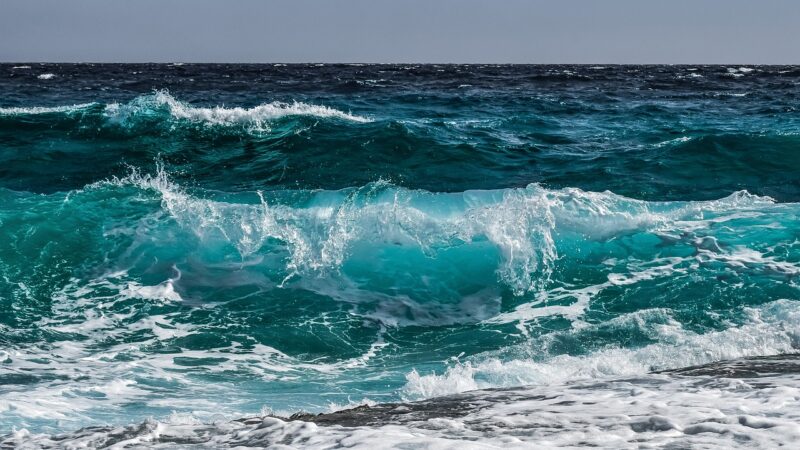The Impact of Ocean Acidification on Marine Life
November 16, 2024

Ocean acidification is a significant environmental issue that has emerged from the increase of carbon dioxide (CO₂) in the Earth’s atmosphere. As atmospheric CO₂ levels rise, a substantial portion of that gas is absorbed by the oceans, leading to chemical reactions that change seawater’s composition. This article delves into the scientific background of ocean acidification, explores its effects on various marine organisms, and discusses potential consequences for marine ecosystems and human society.
1. Understanding Ocean Acidification
Ocean acidification refers to the process where oceans become more acidic due to increased levels of CO₂. Approximately 30-40% of the CO₂ emitted by human activities is absorbed by the oceans. When CO₂ enters the seawater, it reacts with water to form carbonic acid, which dissociates into bicarbonate and hydrogen ions. This increased concentration of hydrogen ions leads to a decrease in pH, making the ocean more acidic.
The average pH of ocean surface waters has declined from approximately 8.2 to about 8.1 since the beginning of the 19th century, representing a 30% increase in acidity. If current trends continue, projections estimate that by the end of the century, surface ocean pH could drop to 7.7 or lower, posing significant threats to marine life.
2. Effects on Marine Organisms
The impact of ocean acidification differs among species and life stages. Here are the major groups of marine organisms affected:
- Calcifying Organisms: Species like corals, mollusks (e.g., oysters and clams), and certain phytoplankton require calcium carbonate to build their shells and skeletons. As ocean acidity increases, the availability of carbonate ions decreases, making it more difficult for these organisms to develop their structures. Coral reefs, which support an abundance of marine life, are especially vulnerable, leading to coral bleaching and reduced biodiversity.
- Fish and Other Marine Animals: While fish do not rely on calcium carbonate, ocean acidification can impair their sensory systems, affecting their ability to detect predators and prey. Studies show that acidified waters alter behaviors in crucial fish species, particularly during their early life stages, leading to decreased survival rates.
- Phytoplankton And Zooplankton: These microscopic organisms form the base of the marine food web. Changes in ocean chemistry can affect their growth rates and species composition. For example, certain types of phytoplankton that are less tolerant to acidic conditions may struggle to thrive, impacting the entire marine ecosystem due to their role as primary producers.
The consequences of these impacts extend beyond individual species to affect entire ecosystems and the human communities that depend on them.
3. Consequences for Marine Ecosystems
Marine ecosystems are intricate webs of interactions among organisms. Ocean acidification can disrupt these relationships, resulting in:
- Disruption of Food Webs: If primary producers like phytoplankton are affected, it can cascade through the food chain, impacting higher trophic levels, including commercially important fish species. This disruption can lead to diminished fish stocks, affecting food security and livelihoods.
- Loss of Biodiversity: Sensitive species may struggle to survive, leading to shifts in community composition. As some species decline while others thrive, the balance of the ecosystem can change, reducing biodiversity and resilience to other environmental stressors, such as climate change.
- Alterations in Ecosystem Services: Healthy marine ecosystems provide numerous services, including carbon storage, coastal protection, and recreational opportunities. The decline of coral reefs and shellfisheries arising from ocean acidification can severely impact these services, affecting human well-being.
4. Human Impacts and Socioeconomic Consequences
The implications of ocean acidification address not only ecological considerations but also socioeconomic issues:
- Fisheries and Economic Losses: Many communities rely on fishing and aquaculture, which are threatened by the impacts of ocean acidification. Shellfish industries, for instance, face challenges, as reduced shell growth can increase production costs and decrease yields.
- Food Security: As fish stocks decline, communities that depend on seafood as a protein source may face nutritional deficits. Food security becomes a pressing concern, particularly in developing regions where fish is a primary food source.
- Tourism and Recreation: Coastal communities often depend on healthy marine ecosystems to support tourism, such as diving and snorkeling around vibrant coral reefs. Ocean acidification jeopardizes these activities and the jobs associated with them.
5. Mitigation and Solutions
While addressing ocean acidification involves tackling climate change, there are several approaches to mitigate its impact:
- Reducing CO₂ Emissions: The most effective way to combat ocean acidification is to reduce carbon dioxide emissions globally by transitioning to renewable energy sources, enhancing energy efficiency, and implementing sustainable practices across all sectors.
- Conservation of Marine Habitats: Protecting and restoring sensitive marine habitats such as mangroves, seagrasses, and coral reefs enhances the resilience of these ecosystems against acidification and other stressors.
- Research and Monitoring: Increased research efforts are necessary to understand the long-term impacts of ocean acidification and to develop adaptive management strategies. Establishing monitoring programs can help track changes in ocean chemistry and marine life over time.
Conclusion
Ocean acidification presents a significant challenge to marine ecosystems and human communities. As the oceans continue to absorb excess CO₂, the chemical changes in seawater will have profound implications for marine life and the services these ecosystems provide. Addressing this global issue requires urgent action to reduce greenhouse gas emissions, protect marine habitats, and increase research into the potential impacts of acidification. It is imperative that we take collective action to safeguard the health of our oceans for future generations.
By raising awareness of ocean acidification and advocating for sustainable practices, we can work towards preserving the delicate balance of our marine ecosystems and ensuring their resilience in a changing climate.







